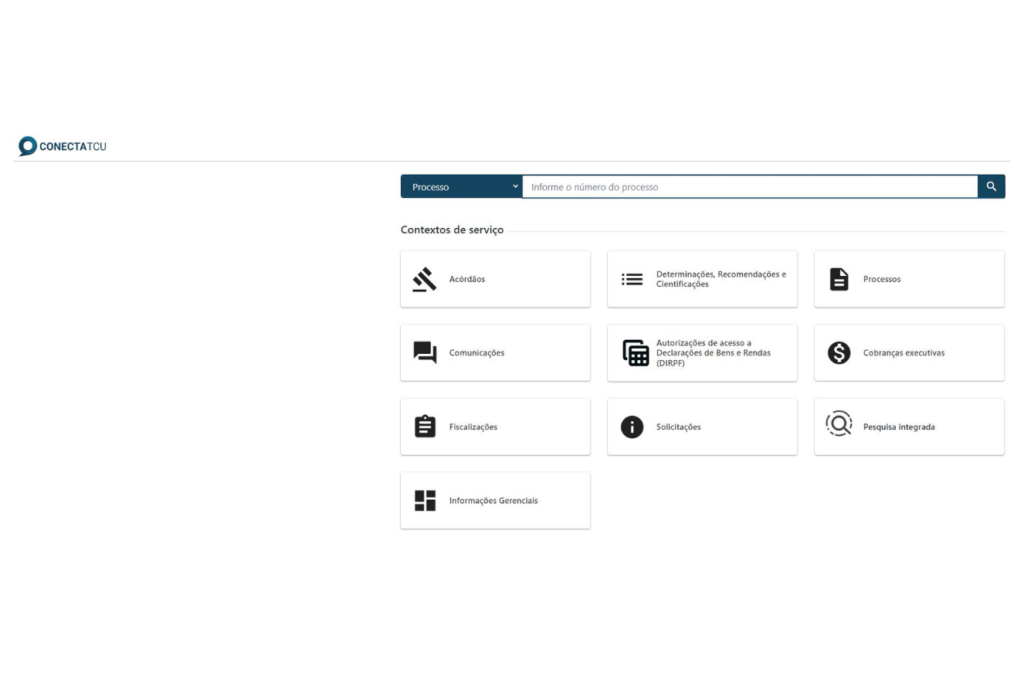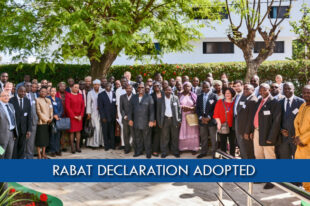Citizen Participation in Monitoring the Decisions of the Federal Court of Accounts: A Path to Transparency and Efficiency in Public Management

Author: Klauss Nogueira; auditor of the Specialized Information Technology Audit Unit of TCU (Brazilian Federal Court of Accounts).
Introduction
In 2023, the Federal Court of Accounts (TCU), the SAI of Brazil, issued 137 decisions containing deliberations for its jurisdictional units. These decisions generated 1,110 items subject to monitoring, including determinations and recommendations. Monitoring the implementation and impact of these deliberations is a process as important as the audits themselves, demanding a considerable effort from the SAI’s resources.
In this regard, it is imperative that the TCU harness the strength and support of citizen participation in this task to exponentially enhance and qualify the monitoring actions through citizen engagement in control activities.
Over the past years, the TCU has been striving to implement strategies and mechanisms for citizen participation in external control, guided by the International Organization of Supreme Audit Institutions (INTOSAI) and the Organization of Latin American and Caribbean Supreme Audit Institutions (OLACEFS). These institutions have recognized that citizen participation is fundamental to improving public management and institutional quality. Therefore, they have encouraged SAIs to interact with external actors interested in promoting active civil society participation, as established in the OLACEFS Declaration of Asunción, 2009, and the OLACEFS Declaration of Punta Cana, 2016.
TCU Explores Innovative Options to Engage Citizens in Monitoring Decisions
In 2018, in an internal competition for innovative control ideas, the article “Social Control of TCU Deliberations” was awarded for proposing the availability to society, on a web page, of a consultation system for non-confidential Tribunal deliberations. This system would allow consolidated consultations by various criteria, including government function, agency, subject, compliance status, date, process, etc. For instance, a query on unattended deliberations of an agency X would result in all pending determinations and recommendations directed at that agency X, indicating the process and the decision that supported it. Although this proposal was not implemented, it sparked further discussion into ways that TCU could engage citizens in monitoring.
Providing this information in a public and user-friendly system would contribute to increasing the transparency of TCU’s actions, as well as allowing Civil Society Organizations to exercise the necessary social control, assisting even the External Control in monitoring the deliberations.
Moreover, the availability of this information in an open format would allow researchers and civil society organizations to conduct their analyses of the deliberation data set, using technological processes such as data mining techniques, big data, artificial intelligence, among others, with the aim of producing knowledge about the characteristics of deliberations with higher or lower implementation rates, thereby feeding back into the external control system.
TCU Establishes Multiple Ordinances to Guide Citizen Participation Approaches
Following this line of approach to citizen participation, also in 2018, the TCU published Ordinance 345/2018, which approved the guide “The TCU and Social Control,” aiming to establish general guidelines for interacting with social control, as well as providing a foundation for developing a partnership strategy with society for Public Administration control. This document foresaw that Civil Society Organizations could help monitor the actions of the audited entity to comply with an audit report. In conjunction with media attention, this monitoring could pressure the audited entity to take the necessary corrective action. In 2023, Ordinance Segecex No. 24 established the Guidelines on Citizen Participation, marking an important step towards a deeper interaction between the TCU and society. This ordinance recognized the relevance of citizen participation in the process of auditing and controlling public administration, encouraging collaboration and information sharing.
Through these guidelines, the TCU aims not only to inform and educate the population about their rights and duties in auditing public resources but also to open channels for citizens to actively contribute to the control process.
Regarding the reporting and monitoring phases, Ordinance Segecex No. 24 established guidelines to create simplified versions of reports of interest to citizens and to engage citizen participation entities in monitoring the decisions.
Finally, the Lima Declaration of 2024, emanating from the INTOSAI Task Force on Citizen Participation and Civil Society Interaction, recognized the active involvement of citizens and institutions as a relevant factor to increase the reach and impact of public sector auditing.
TCU Development of Framework and Digital Platform for Citizen Participatory Monitoring
Based on the guidance of major institutions, INTOSAI and OLACEFS, and with the establishment of an internal regulatory framework through citizen participation guidelines, the TCU has sought to realize citizen participation in control. In this context, some works have been carried out with social control interaction, such as the Citizen Task Force 2021, in which volunteer citizens, trained by auditors from oversight agencies, assessed the passive and active transparency of the municipalities’ transparency portals.
The results revealed a clear absence of data, making it difficult for oversight agencies and society to monitor through social control. In cases of evidence of irregularities, the competent authorities were notified to take appropriate action, which could result in fines and disqualification from holding public office.
The project remains active, and in 2023, Ordinance Segecex No. 24 regulated the structure used in the Citizen Task Force as the institutional model to be followed by the TCU.
In another vein, a digital services platform, Conecta-TCU, was developed with the goal of providing interaction with the TCU, allowing access to information, and serving procedural communication. The platform consists of several modules already in operation, intended for agencies and entities that are recipients of TCU rulings, and the Citizen module, scheduled for 2025, will allow access to the data of each deliberation’s monitorable items.
With access to consolidated information on all rulings issued by the TCU in an easily accessible location, organized civil society will achieve greater transparency and accountability. This access will enable them to monitor government actions more effectively, advocate for better governance practices, and contribute to holding public officials accountable for their decisions and expenditures.

Currently, the TCU seeks to approach entities working with public data and social control to identify information gaps in TCU’s communication with society. It is expected that this approach will result in clear and accessible information availability and the creation of mechanisms that facilitate interaction between the Tribunal and citizens.
Conclusion
Monitoring the TCU’s decisions with active citizen participation is crucial for strengthening democracy and promoting a more transparent, efficient, and accountable public administration. The Guidelines on Citizen Participation, the recognition of social control as an essential complement to the TCU’s work, and international efforts like the Lima Declaration are important steps in this direction.
In addition, the implementation of citizen participatory monitoring of audit results by other Supreme Audit Institutions (SAIs) or auditing organizations could provide valuable insights into enhancing public trust, promoting accountability, and fostering more effective governance practices globally. Embracing citizen engagement in auditing processes has the potential to strengthen democratic oversight mechanisms and improve the overall quality and impact of public sector auditing efforts worldwide.
By encouraging and facilitating citizen participation, the TCU not only extends the reach and effectiveness of its decisions but also contributes to building a more informed, engaged society capable of exercising its role in public administration control.





